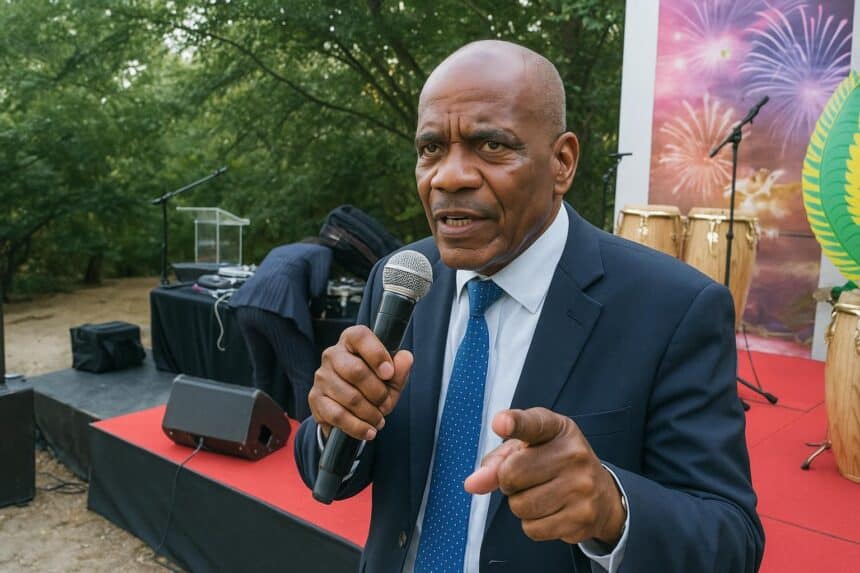Sudden news shakes Congolese music lovers
Brazzaville fans stayed up late on 8 October 2025, scrolling feverishly through Facebook posts stating that Pierre Moutouari had passed away in Paris at 75. At first many hoped it was another online hoax, yet confirmations multiplied and grief settled across timelines.
Within minutes, Congolese music pages replaced profile photos with black ribbons and a line from his anthem ‘Missengue’. Radio Congo Matin interrupted programming to play the track, while presenters urged listeners to share memories of the man who popularised a joyous, guitar-driven brand of rumba-soukouss.
Early roots in Brazzaville bands
Born in Brazzaville in 1950, Pierre followed the path cleared by his elder brother, Kosmos, star of the legendary Bantous de la Capitale orchestra. The siblings’ harmonies soon became a fixture of neighbourhood parties, where makeshift speakers rattled tin roofs deep into warm Congolese nights.
In 1968 the younger Moutouari, initially a shy guitarist, accepted Kosmos’s invitation to join Bantous on stage. Promoters loved his clear tenor; audiences loved his footwork. Only two years later, scouts from Sinza Kotoko lured him away, promising creative freedom and better studio time.
The gamble paid off. Backed by Sinza’s tight horn section, he fronted hits such as ‘Vévé nga na lingaka’ and ‘Ma Loukoula’. The ensemble’s crowning moment came in 1973, winning gold at the Pan-African Youth Festival in Tunis, a rare continental spotlight for Congolese pop.
Paris move and worldwide breakthrough
Success emboldened him to form Les Sossa, a short-lived band remembered for marathon rehearsals in Poto-Poto district. When the project folded in 1975, Moutouari chose another leap: a solo career from the Paris suburbs, epicentre of African diasporic sound experiments during the late seventies.
Paris offered new allies. He swapped licks with Guadeloupean maestro Jacob Desvarieux, future co-founder of zouk pioneers Kassav’. Guitar virtuoso Ignace Nkounkou added sharp solos, while studio engineer Tanawa layered brass lines. The chemistry birthed polished singles that contrasted with the raw, live-take recordings back home.
The breakthrough arrived in 1981 with ‘Missengue’, whose circular guitar riff and catchy chorus made dance floors sway from Abidjan to Abéché. Follow-up tracks ‘Julienne’ and ‘Mahoungou’ confirmed his status; French magazines dubbed him ‘Master Soukouss’. Sales topped 100,000 copies worldwide, earning two gold discs.
Return home and mentoring the next wave
Despite international gigs, he never lost sight of home. A triumphant 1986 return concert at Brazzaville’s Stade Marchand ended with crowds chanting his childhood nickname ‘Mbemba’. He then set up informal workshops, teaching aspiring singers mic technique and encouraging guitarists to blend Congolese sebene with funk.
Family also entered the picture. With his eldest daughter Michaëlle, he recorded the album ‘Heritage’, praised by the Kinshasa press for its generational dialogue. The work earned him Best Composer at the 1994 Ngwomo Africa Festival, a prize he dedicated ‘to all young dreamers of Central Africa’.
Challenges, resilience and semi-retirement
Nationwide optimism dimmed three years later when fighting erupted in Brazzaville. Shelling silenced nightclubs, and touring collapsed. Moutouari relocated between Abidjan, Cotonou and Paris, releasing music on cassettes sold in taxi ranks. Admirers say the period cemented his resilience more than any chart position.
Ill-health eventually forced slower tempos. A stroke in 2006 partially paralysed his left arm, making guitar practice painful. He nevertheless appeared at diaspora weddings, singing in playback and smiling broadly. Close friend and producer Guy M’Passi recalls him saying, ‘The voice is an instrument too’.
Tributes and cultural significance
News of his passing triggered an avalanche of tributes. On X (formerly Twitter), journalist Brice Alanga posted a vintage concert clip captioned, ‘Our soundtrack to independence parties is gone.’ Congolese Culture Minister Lydie Pongault saluted ‘a patriot who exported our rhythms with dignity’ (La Semaine Africaine).
Beyond nostalgia, scholars emphasise his role in shaping urban identities. Ethnomusicologist Francine Obami notes that ‘Missengue’ linked traditional Kongo lyrics with Parisian studio polish, prefiguring today’s pan-African Afrobeats crossover (RFI, 9 Oct 2025). Such fusions, she argues, help younger Congolese navigate globalised cultural spaces confidently.
For listeners wanting to rediscover the catalogue, major platforms have grouped his remastered singles under ‘Pierre Moutouari Essentials’. Local record shop Sonodisc Brazzaville reports a surge in cassette and vinyl enquiries. The family says a memorial concert will be organised ‘after necessary administrative steps in France’.
Meanwhile, downtown bars keep his picture on the wall, next to framed jerseys of Diables Noirs football club. Patrons swap stories of first loves danced to ‘Julienne’. The bartender at M’Futi Lounge sums it up: ‘His groove made us forget closing times; that spirit stays’.
An echo that keeps moving
Pierre Moutouari’s journey mirrors modern Congolese history: migration, creativity, hardship and endless dance. Even in silence his riffs travel, echoing through taxis, weddings and earbuds. The last note may have faded in Paris, yet the chorus lingers, urging a continent to keep moving for generations to come.





















